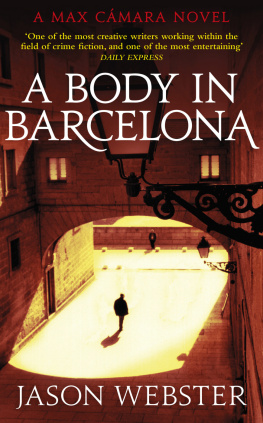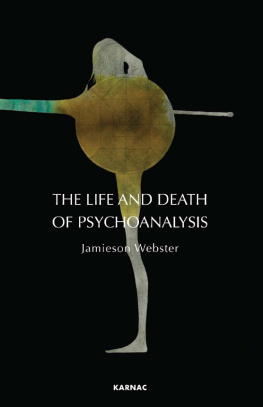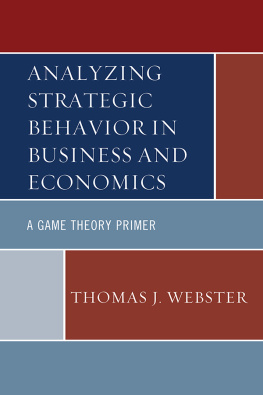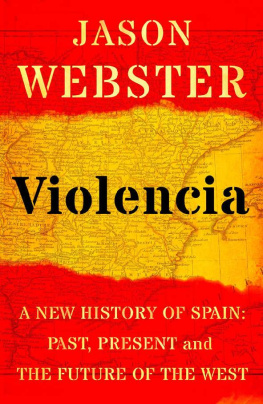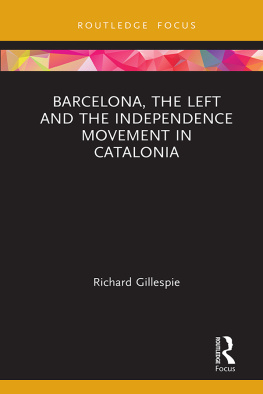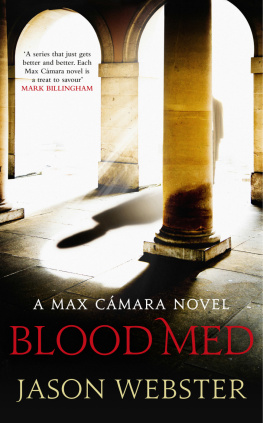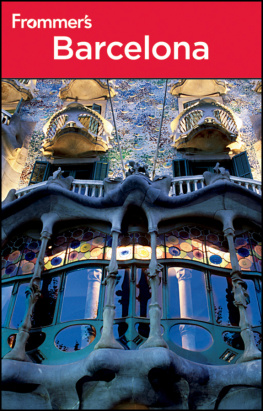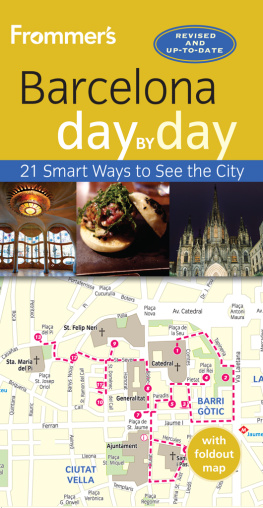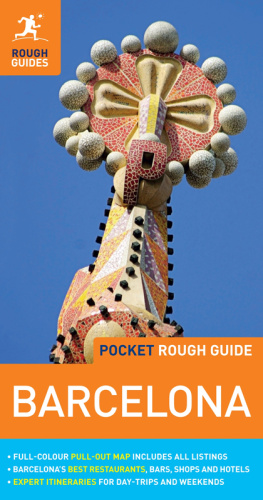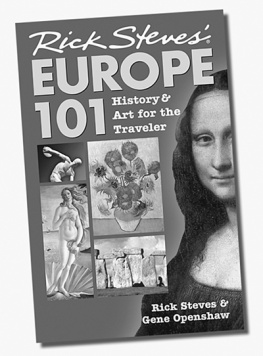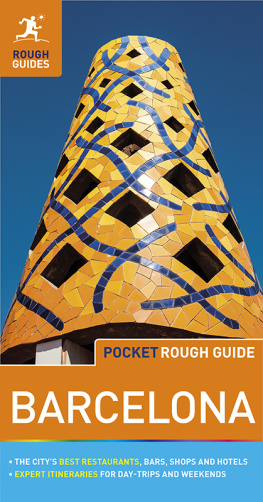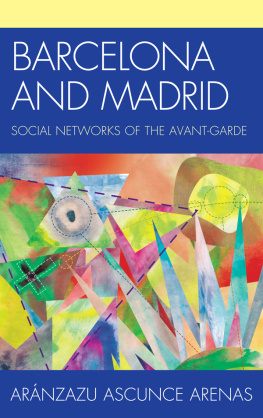Contents
Contents
For Miles and Ingrid
About the Book
Tensions in Spain are rising: political violence and social unrest have suddenly re-emerged. Madrid is trying to keep a tight leash on Catalonia, where the call for independence is getting louder by the day. The last time Barcelona moved to break away, in the 1930s, Spain quickly descended into civil war.
Down in Valencia, a shallow grave is found among abandoned orange groves just outside the city. Chief Inspector Max Cmara, now heading up the new Special Crime Unit, is put on the case. But this is no ordinary murder. Behind it, Max uncovers a tangled web that could awaken ghosts from the past, decimate Barcelona and destabilise the whole country.
Its all down to Max, but the stakes are higher than anything hes ever known.
About the Author
Brought up in England, Jason Webster has lived for many years in Spain. His acclaimed non-fiction books about Spain include Duende: A Journey in Search of Flamenco; Andalus: Unlocking the Secrets of Moorish Spain; Guerra: Living in the Shadows of the Spanish Civil War; Sacred Sierra: A Year on a Spanish Mountain and The Spy with 29 Names. His Max Cmara series of crime novels started with Or the Bull Kills You, which was was longlisted for the CWA Specsavers Crime Thriller Awards New Blood Dagger 2011. This was followed by A Death in Valencia, The Anarchist Detective and, most recently, Blood Med.
BY THE SAME AUTHOR
NON-FICTION
Duende: A Journey in Search of Flamenco
Andalus: Unlocking the Secrets of Moorish Spain
Guerra: Living in the Shadows of the Spanish Civil War
Sacred Sierra: A Year on a Spanish Mountain
The Spy with 29 Names: The Story of the Second World Wars Most Audacious Double Agent
THE MAX CMARA NOVELS
Or the Bull Kills You
A Death in Valencia
The Anarchist Detective
Blood Med
ONE
THE SILVER HANDLE of Colonel Jos Terreross swordstick was a cast of the eagle of St John, formerly the symbol of Their Most Catholic Majesties King Ferdinand and Queen Isabella, and more recently of the dictatorship that had saved Spain from the great MarxistMasonic conspiracy. The handle was shiny and smooth, and as he walked to work along Calle Tejero, the colonel gripped it tightly, tapping the bottom of the stick with a strict rhythm on the pavement.
It was a fine morning in Ceuta, with a mild Poniente breeze that cleaned and freshened the air. On any other day he might stop at one of the bars along the promenade and have a coffee while gazing out over the strait towards the peninsula, watching the tankers passing lazily between Mediterranean and Atlantic, or the ferries marching more briskly southwards from Algeciras, a vital link between this little Spanish corner of Africa and the Fatherland. But today he felt alive with urgency. He had to press on. There would be time for such pleasures again soon, once a better future had been secured.
His feet took him along his usual route, the Paseo de la Marina Espaola, first crossing Calle de la Legin and then Calle Milln Astray. He checked every day that the street signs were as they always had been, always should be. Like old friends. Unlike other parts of the country, where tradition was under daily assault, Ceuta still valued the armed forces institutions that had made the country great. And kept it so.
Over recent years, governments in Madrid had managed to remove some of the more glorious names from Ceutas streets there was no longer a sign for Calle General Franco, for example. But Milln Astray, the founder of the Legin, was still honoured. Francos mentor had played his part in the success of the National Uprising of 1936, but years before that, here in Ceuta, he had created the Legin the greatest fighting force that the country had ever produced. The original idea for the elite unit might have come from elsewhere, but the French had to fill theirs with foreigners, and the tougher, more rugged Spanish legionarios made their Francophone counterparts look like pussycats.
Milln Astray had suffered the wounds of a martyr, sacrificing both an arm and an eye for the nation. A true hero. Let them come, if they dared, and try to remove his name. Let them try to scrub history clean of the great men who had saved the country from the Red scum. Let them pander to the Leftists, the separatists, the Godless and the queers. Let them come here and try to do that. And then they would find themselves learning the true meaning of tradition. And rebellion.
A light gust of wind blowing in from the strait brought the scent of ships diesel and salt water from the port and the grey pencil moustache above Terreross upper lip twitched as the embryo of a smile formed on his mouth: it was the smell of action, of decision.
His offices were near the Cathedral of Our Lady of Africa, a few paces from the main square, down a side street and up a narrow staircase on the second floor. The climb could be difficult at times, but he was still strong, despite his sixty-three years, and had learned to ignore the pain. At the top, a green door with frosted glass led to a small room with an oak desk in a corner. A computer sat on the top; in a drawer, hidden from view, was his 20cm-barrel, ivory-grip .357-calibre Magnum Colt Python, which he liked to polish before lunch every day. On the wall, next to the portrait of Franco and embossed in gold on a wooden plaque, was written the motto of the Legin: Todo por la Patria: Everything for the Fatherland.
Within moments of his arrival, there was a rap on the door and a small middle-aged man with a white apron tied around his waist came in bearing a tray.
Buenos das, Seor Coronel.
Buenos das, Paco, Terreros answered stiffly.
Youve heard about the latest assault on the border?
The barman leaned across and placed Terreross caf cortado on the edge of the desk with a slight tremble of the hand. It was only half-past eight in the morning, but Paco had been up since five, cleaning and setting up his premises for the early workers stopping off for coffee and brandy before clocking on. Then came the rounds of shops and nearby offices, each with their regular and very specific orders. The steps up to the colonels office were the worst, and he left it till last, when his tray was that bit less heavy. Days when the wind came from the east the Levante were the worst, causing his joints to ache. Today was less bad, but he could never reach the green door without panting and breaking into a sweat.
Pacos reward, however, was to allow himself a moments conversation never too long; they were both busy men with the colonel. Terreros was not merely a retired military officer, he was ex-Legin, and no matter what was happening either in Spain or the rest of the world, he had opinions and insights that needed to be listened to. Paco liked to think that the colonel in his turn appreciated the titbits that he brought every so often rumours, overheard conversations, mere gossip in many cases. But it gave Terreros another ear to the ground. Paco never knew exactly what the colonel did up here. The plaque at the ground-floor entrance described his office as La Asociacin de Ayuda para Legionarios (the Veteran Legionarios Welfare Association). But quite what that work entailed he could not say. And despite carrying out occasional favours for the colonel, he never asked.
Today there was something fresh to talk about. The colonel almost certainly knew about the large group some said as many as a thousand of sub-Saharan African men who had tried to storm the border between Morocco and Ceuta during the night. Such incidents were becoming more and more frequent, despite the use of razor wire to keep them at bay. Unlike earlier attempts, however, the previous nights break-in had resulted in over twenty deaths: some of the

